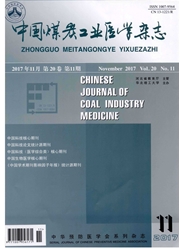

 中文摘要:
中文摘要:
有两 CYP2C9 *3 / *3 和 VKORC1-1639 A/A 的遗传型的背景病人被期望要求 warfarin 的最低剂量,并且在如此的极其稀罕的案例中为 warfarin 的 dosing 有 bleeding.The 经验的极大地增加的风险是很少,人口统计的 reported.Methods 和从有在中国的 warfarin 的稳定的低剂量的二个案例的临床的数据被重新定序学习在他们的整个血 DNA.The 潜在的临床的价值的相应基因片断 pharmacogenetic al
 英文摘要:
英文摘要:
Background Patients with the genotypes of both CYP2C9*3/*3 and VKORC1-1639 A/A are expected to require the lowest dose of warfarin, and to have a greatly increased risk of bleeding. The experience for the dosing of warfarin in such extremely rare cases has been seldom reported. Methods Demographic and clinical data from two cases with stable low dose of warfarin in China were studied by resequencing the corresponding gene segments in their whole blood DNA. The potential clinical value of the pharmacogenetic algorithm for them was evaluated by calculating the stable dose of warfarin in pharmacogenetic algorithm developed by International Warfarin Pharmacogenetics Consortium. Results Both cases (68-year-old female and 50-year-old male) were diagnosed as chronic nonvalvular atrial fibrillation needing warfarin treatment, with target international normalized ratio (INR) 2 to 3. Case 1 had stable warfarin dose of 0.625 mg/d and case 2 1.25 mg/d. They needed more than 1 month to stabilize their anticoagulation. Exceeding INR values were recorded for them when the dose of warfarin was no more than 2 mg/d. Hemorrhagic complication appeared in case 1 when the dose was titrated from 2.5 to 1.25 mg/d. No concomitant medicine to increase or decrease the INR value was recorded for them. Genotyping CYP2C9 and VKORC1 showed both patients were the carriers of the homozygous alleles-CYP2C9*3/*3 and VKORC1-1639 A/A. Their stable doses of warfarin calculated by the pharmacogenetic dose algorithm (0.672 mg/d for case 1 and 1.16 mg/d for case 2) were comparable with their actual stable therapeutic doses. Conclusions Two Chinese with the rare genotypes of both CYP2C9*3/*3 and VKORC1-1639 A/A were found to require the extremely low dose of warfarin. The pharmacogenetic algorithm incorporating the variances of VKORCl and CYP2C9 genotypes, as well as the non-genetic factors could predict their stable dose of warfarin with high accuracy.
 同期刊论文项目
同期刊论文项目
 同项目期刊论文
同项目期刊论文
 High Levels of Inflammation and Insulin Resistance in Obstructive Sleep Apnea Patients with Hyperten
High Levels of Inflammation and Insulin Resistance in Obstructive Sleep Apnea Patients with Hyperten 期刊信息
期刊信息
